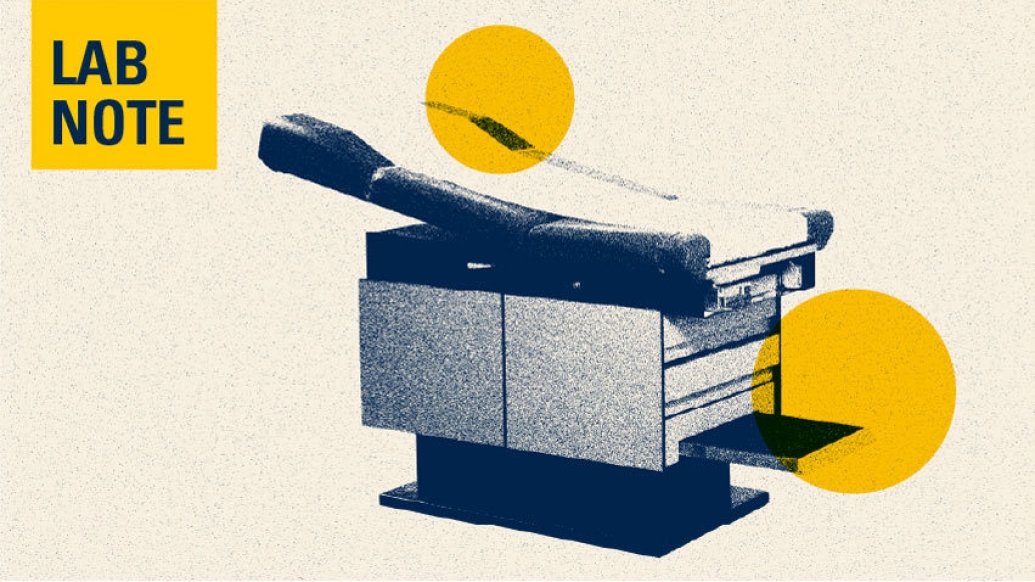Study shows members of public are most likely to want notification if commercial researchers may use identifiable health information – even more than for research on biospecimens.
11:47 AM
Author |

When a patient goes to a hospital or clinic, they might not realize that their digital medical records and samples of their blood or tissue may get used in ways far beyond guiding their care.
But a study suggests that many members of the public want to know if their health information or samples from their bodies will be used in research or to help develop new biomedical products.
That's especially true if their data and biospecimens might get used by commercial companies, rather than university researchers, or if identifying information like their name or address will be attached when it's shared.
Writing in JAMA, a team from the University of Michigan reports findings that could help policymakers decide when to require health care systems to alert their patients about potential sharing with universities and drug, biotech and device companies, and when to allow identifiable information to travel with the data or samples.
In recent years, policymakers have tried to put more conditions on use of physical specimens, based on the assumption that patients deserved more notification about something from their body being used by others.
"In fact, the opposite is true: people are more likely to want notice regarding research use of their health information as compared to biospecimens," said Kayte Spector-Bagdady, J.D., M.B.E., first author of the new paper and associate director of the Center for Bioethics & Social Sciences in Medicine at Michigan Medicine, U-M's academic medical center. "We hope that our research can help settle the ongoing policy question of whether we should make expensive and limiting changes to our research structure to offer higher protections to biospecimens versus health information, as well as help guide related choices in the future."
Senior author Jodyn Platt, Ph.D., M.P.H., of the U-M Department of Learning Health Sciences, added, "Our study also points to information the public would deem important in notification policies: the types of information being shared, whether it's shared with commercial companies, and whether the information is identifiable."
The paper draws on a national survey of more than 2,000 American adults who went though a brief educational exercise before answering the survey about situations where they might want to be notified.
The researchers showed survey respondents a video about a fictitious patient and explained the rules that govern access to her data and samples. They then asked the respondents to say on a four-point scale how much they agreed with the statement that they would want to be notified in eight different scenarios for the use of their own health information or biospecimens.
The sample of adults was weighted to generalize across a wide array of education and income levels, and demographic groups.
Several years ago, a proposed government rule would have set a higher standard for notification of patients whose biospecimens might be used in research or commercial product development, compared with the standard for health information – even if those specimens or data have no identifying information attached to them.
While that rule did not go into effect because of concern over its effect on research conduct and costs, it will be revisited periodically by regulators. The authors of this study hope that their research will help inform that important policy conversation moving forward.
Spector-Bagdady and Platt are members of the U-M Institute for Healthcare Policy and Innovation. Spector-Bagdady and others helped design Michigan Medicine's framework for data sharing with industry, considered a national leader.
The study was funded by Spector-Bagdady's grand from the National Human Genome Research Institute (HG010496) and Platt's grant with U-M School of Public Health researcher Sharon Kardia, Ph.D., from the National Cancer Institute (CA214829). Kardia is a co-auther on the paper.
Reference: "Reported Interest in Notification Regarding Use of Health Information and Biospecimens," JAMA. DOI: 10.1001/jama.2022.9740

Explore a variety of healthcare news & stories by visiting the Health Lab home page for more articles.

Department of Communication at Michigan Medicine
Want top health & research news weekly? Sign up for Health Lab’s newsletters today!





